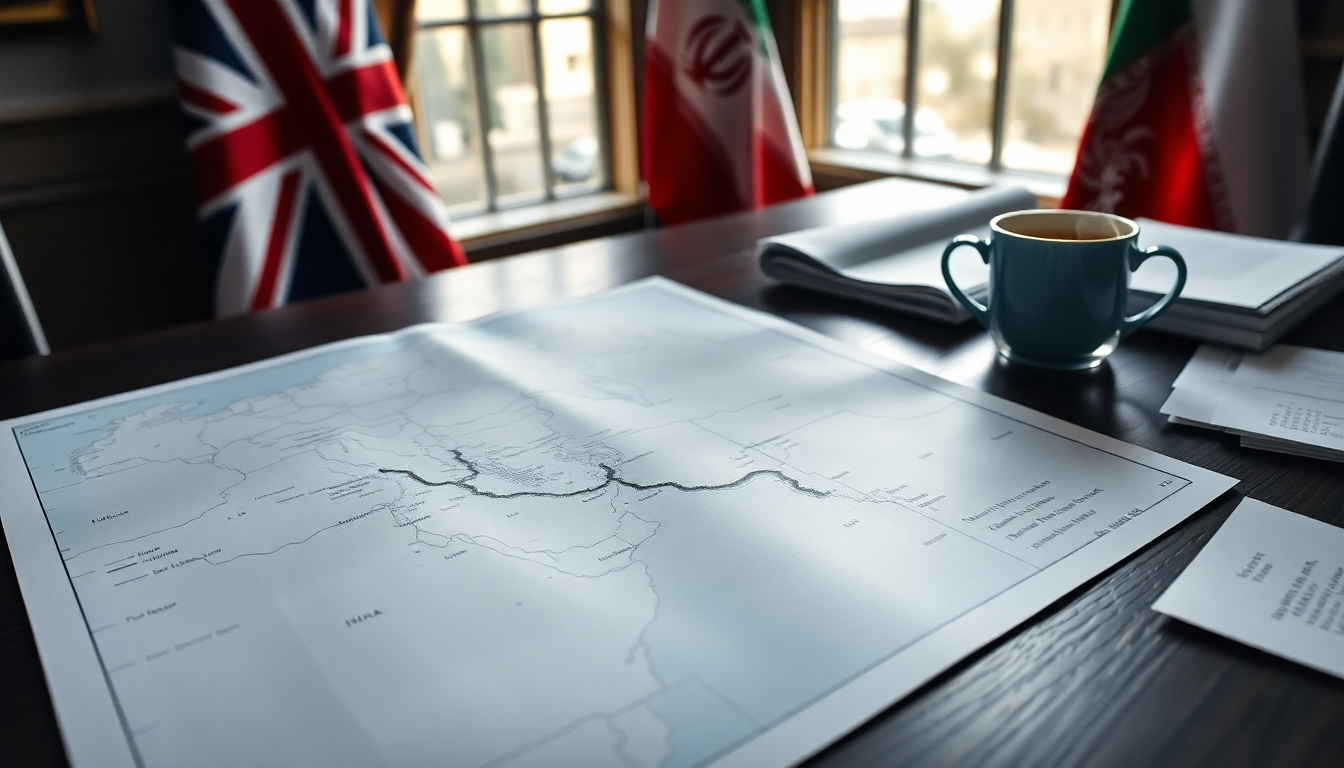Table of Contents
With global politics constantly shifting, the relationship between the UK and Iran has hit a critical juncture, especially in light of recent U.S. military actions. The British government is sending a clear message to Iran: avoid escalating tensions, as retaliatory measures could have dire consequences. In this article, we’ll dive into the current diplomatic landscape, explore the strategic significance of the Strait of Hormuz, and discuss what this all means for international relations.
The Importance of the Strait of Hormuz
Think of the Strait of Hormuz as a lifeline for global oil shipments; around 30% of the world’s seaborne oil flows through this narrow passage. When the Iranian parliament backed a measure that could potentially close the strait, alarms went off not just in the UK but around the world. UK Foreign Secretary David Lammy made it clear to Iran’s leadership: any military action against U.S. bases or a blockade of the strait would bring severe repercussions. His words reflect a deep concern about regional stability and the risk of a conflict spiraling out of control.
As Iran weighs its response to recent U.S. airstrikes targeting its nuclear facilities, the decision ultimately rests with Supreme Leader Ayatollah Ali Khamenei. It’s a tricky situation; while Iran may feel the pressure to retaliate against what it views as aggression, the potential fallout—both economically and militarily—cannot be overlooked. A retaliatory strike could lead to military confrontation and disrupt global oil supplies, impacting economies all over the globe. Isn’t it interesting how interconnected everything is?
The UK’s Diplomatic Stance
In this tense atmosphere, the UK government is advocating for de-escalation. Prime Minister Keir Starmer, alongside leaders from France and Germany, has called on Iran to engage in negotiations about its nuclear ambitions. This effort shows that despite rising tensions, diplomatic avenues remain open. It’s not just about addressing the immediate crisis; it’s also about tackling the deeper issues surrounding Iran’s nuclear program.
However, the UK’s involvement in U.S. military actions raises some eyebrows regarding its role on the global stage. While the UK was informed about the U.S. strikes, it was not invited to take part, leading to speculation about the future of UK-U.S. relations. Defense Minister Luke Pollard’s decision to stay mum on the U.S. actions underscores the balancing act the UK must perform, aligning its national interests with those of its ally. How does the UK navigate this tightrope?
Looking Ahead: Potential Outcomes and Implications
As tensions rise and both nations ponder their next steps, the outcomes of these interactions could reshape the geopolitical landscape for years. The risk of miscalculations is significant, and the UK’s call for restraint highlights just how precarious the situation is. A renewed focus on diplomatic negotiations might provide a way to ease tensions, but let’s be honest—the road ahead is anything but straightforward.
In conclusion, the dynamics between the UK and Iran are complex and ever-changing. The mix of military actions, economic factors, and diplomatic efforts will be crucial in shaping the future of this relationship. Both nations need to carefully weigh their options to steer clear of a broader conflict while also addressing pressing concerns about Iran’s nuclear capabilities. Isn’t it fascinating how one relationship can have such far-reaching implications?


